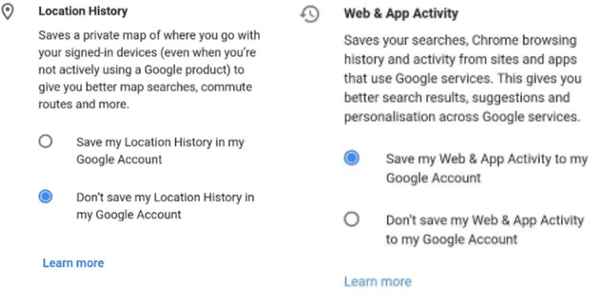
Who knew? Turning off Location History on Google doesn’t actually turn off location history. That, at least, is the basis of an A$10 million lawsuit the Australian Competition and Consumer Commission (ACCC) are bringing against the search giant.
It turns out that Google’s account settings on Android phones and tablets led consumers to believe that going to Location History and choosing a setting on marked “Don’t save my Location History in my Google Account” would do just that, when in fact they also needed to select a setting under Web & App Activity marked “Don’t save my Web & App Activity to my Google Account” as well.

So what’s the big deal?
Your location gives away more information than you might expect. It allows Google to work out demographic information such as where you live – an indicator of your socio-economic status. It also shows your movement patterns (favours this bar, this restaurant, travels this route to work) and how long you spend at each location. This forms part of the profile that Google uses itself or sells to third-parties to aim ads at you. (And just imagine if this information fell into the hands of a local burglar!)
In the scheme of things, it’s not a big deal even if Google lose. A $10 million fine? Pah! The company made US$116 billion in global advertising revenue last year (and probably paid bugger all tax on it too). But it hopefully bolsters the trend of governments clamping down on deceptive practices by corporate giants who employ what one report calls “dark patterns”, or “features of interface design crafted to trick users into doing things that they might not want to do”.
And it might just boost the use of privacy focussed, non-tracking search engines like StartPage and DuckDuckGo.

